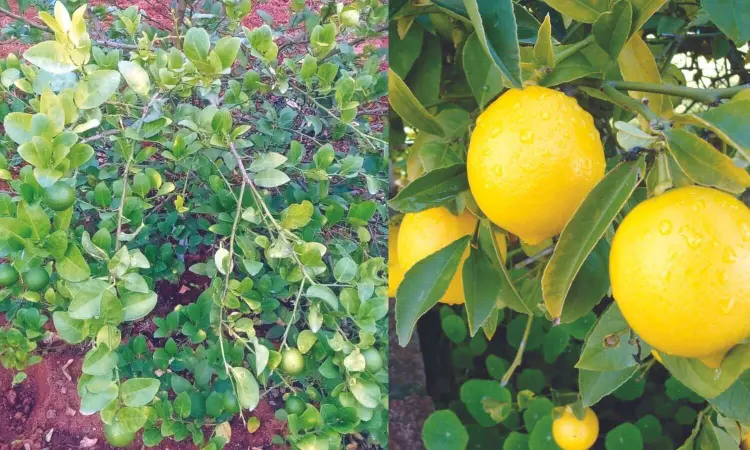Even as price skyrockets, poor yield hits lemon farmers in Tamil Nadu
The procurement price of lemons ranges from Rs 110 to Rs130 per kg usually. but much to the delight, the farmers saw an unprecedented rise in price this year as a kilo, which contains about 16 to 18 pieces, fetched Rs 200, the highest ever last week.

A prolonged dry spell has hit lemon farmers in Puliangudi, Tenkasi district
MADURAI: The rising demand for lemons has led to mixed reactions among farmers growing the citrus fruits as a prolonged dry season and less yield have resulted in a drop in revenue, despite the price skyrocketing among the common public.
Villiseri, a village near Kovilpatti in the Thoothukudi district, is an apt example of the predicament of the farmers. Lemons are a principal cash crop for this village and the surroundings. Owing to an increased usage of lemons for hydration purposes amid scorching summer, prices and demand have peaked.
The procurement price of lemons ranges from Rs 110 to Rs130 per kg usually. but much to the delight, the farmers saw an unprecedented rise in price this year as a kilo, which contains about 16 to 18 pieces, fetched Rs 200, the highest ever last week. This has in turn pinched the pockets of consumers who are forced to pay as much as Rs 15 for a single lemon, even though it is sold at Rs 5 each at many places.
As demand for lemons, which are primarily consumed by many to beat the heat, picks up, its prices are rising manifold.
Lemons of ‘PKM -1’ variety were widely grown on around 800 acres at Villiseri says K Balamurugan, who owns a lemon grove in the locality. He added that 500 bags each weighing 50 kilos of this edible fruit were sold daily.
“Kerala remains the key market for Villiseri lemon farmers as 300 bags of lemons are being marketed daily catering to the needs of consumers in the neighbouring state. Once the southwest monsoon begins in Kerala, its price will drop significantly’, Balamurugan told DT Next.
As there is almost no rain in Karnataka’s Bijapur and Gudur in Andhra Pradesh, which is one of the largest producers of lemon, its cultivation has fallen sharply in these major production centres, contributing to a surge in demand. Normally, the price of lemon would come down in the State after the Chithirai festival in Madurai culminating with Lord Kallazhagar’s entry into the Vaigai. But even after two weeks after the end of the festival, the price continues to be dear. A drop in yield, up to 60 per cent, is said to be the predominant reason. It has led to a surge in prices.
An 82 –year-old organic farmer, V Anthony Samy, who relies on lemon farming on eighty acres in Tenkasi’s Puliyangudi, which’s known as the ‘lime hub’ of Tamil Nadu, blamed the weather for crop failure resulting in a drastic decline in yield. Rainfall is crucial to lemon farming, especially in December or January. But failing rains have hampered plants from flowering. “Once flowering is over, the fruit develops over summer after a period of four months. It has not been the case in Puliyangudi this time, which is the biggest farming of lemons. A similar scenario occurs across India. The Puliyangudi market usually sees an average of 20 truckloads of lemon transported to Oddanchatram vegetable market, from where it’s taken off to markets across India. But, now the situation is getting worse as only about two or three trucks have been transporting lemons from Puliyangudi, where as many as 10,000 acres rely on lemon farming,” Anthony Samy added.
S Mathiyazhagan, a retired Assistant Director of Agriculture, Kovilpatti said many farmers from some other villages including Kayathar and Akilandapuram preferred cultivating lemons as it tends to be a promising source of income for them. Further, he opined that an exclusive marketplace could be set up either in Kovilpatti or Kayathar for the Villiseri lemon growers.



